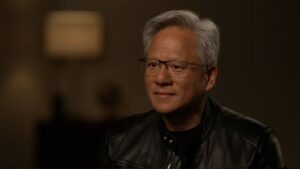David Gergen, a prominent political figure and influential adviser who shaped leadership discourse in the United States, has passed away at the age of 83. Over his extensive career, Gergen served vital roles across four presidential administrations from both major political parties. His son, Christopher Gergen, announced the news of his father’s death, revealing that he had succumbed to Lewy body dementia, a progressive brain disease that affects motor function and cognition.
As the founding director of the Center for Public Leadership at the Harvard Kennedy School, Gergen dedicated much of his life to educating young leaders about civic engagement and the responsibilities that come with leadership. His commitment to fostering new generations of public servants set a high standard for political mentorship. In addition to his educational contributions, he made a significant mark as a political analyst for CNN, where his insights into American politics were respected and widely recognized.
Gergen’s career is defined by his deep understanding of the political landscape in Washington, D.C., and his ability to communicate that knowledge effectively to the public. He was known as a legendary figure within political circles, effortlessly melding insider experience with a commitment to transparency and responsible governance. Through his media presence, he championed the principles of ethical leadership, often attempting to bridge divides between partisanship and to encourage civic participation among citizens.
His political journey began during the Nixon administration, where he held significant roles and gained invaluable experience. In reflections on Nixon’s presidency, Gergen noted a complex relationship, expressing that “before he self-destructed, Nixon was among the best of modern presidents.” After Nixon, he continued to navigate his career through various high-profile political roles, including serving as communications director under President Gerald Ford and later under President Ronald Reagan. His multifaceted career also included notable stints as the editor of US News & World Report, and subsequently, Gergen joined CNN as a commentator.
A pivotal moment in his career came when he accepted an appointment as a counselor to President Bill Clinton. Gergen acknowledged the controversy surrounding this transition in his memoirs, citing his historical connections to Republican presidents with which some might see a conflict. Nevertheless, he was resolute in his friendship with Clinton, expressing that the honor of serving the American president was compelling enough to guide his decision. This shift not only underscored Gergen’s versatility but also highlighted his belief in collaboration across party lines.
Throughout his distinguished career, Gergen exemplified the power of leadership formed on principles of respect, integrity, and public service. His passing marks the end of an era and is felt deeply across the realms of politics and media, where his voice and intellect contributed to essential discussions about governance and civic duty.
As the news unfolds, reflections and tributes to his life and work are poised to resonate widely, capturing the myriad ways Gergen influenced public life in America. With his departure, there is a palpable space left in the discourse of leadership that many will find difficult to fill. The impact of his contributions to public leadership and his ability to foster dialogue across the political spectrum will undoubtedly be remembered and celebrated in the years to come.











